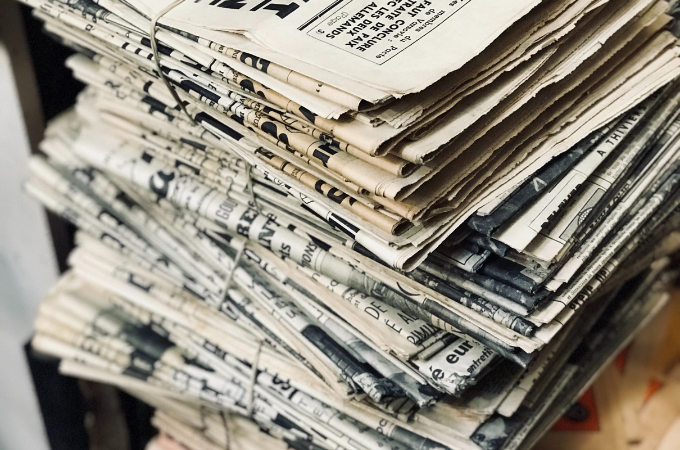
My first trip with Papa to the general hospital in Mthatha happened on a school day. I was thirteen years old and took permission to be absent from school. The trip was necessary because a glob of gel-like substance had grown over the iris of my father’s right eye.
Inside the doctor’s office, Papa sat in front of a colossal phoropter that terrified me. The doctor explained that his deteriorating eye might be removed because the calcified mass was putting pressure on his iris. Following Papa’s consultation, we stepped out of the room and sat in the hospital lobby. I became worried.
“Is the doctor going to remove your eye?” I asked nervously.
“It’s not that bad,” Papa teased. He squeezed my palm affectionately, “Don’t worry. Your Papa will have two eyes for a very long time. It is not today that I began having this problem.” Papa spoke casually, obviously underplaying the severity of his condition.
For a moment, I examined Papa’s right eye. It wasn’t bloody as a damaged eye would appear. Instead, it had a thick layer of gel covering the circumference like a grey cloud. I hesitated before uttering my following words.
“Mama tells me you were locked up in jail. It was there you took a hard fall,” I paused and looked away. “And that’s how your face became disfigured. Is that true?” I felt uneasy asking Papa this question. I had never questioned him about his injury. But I was thirteen, and this day was my first time accompanying him to the hospital. I was conscious of the stares that followed us as we sat on the bus, crossed the street, and waited in the hospital lobby. People’s disdainful stares out here in public hit me hard and sent a message—my father was not normal.
“Hard fall?” Papa shook his head in pity. “Is that what she told you?” he continued, resting his face in his palm.
“I know you went to prison,” I concurred. “I saw the photo you showed your doctor. In the photo, you’re kneeling behind steel bars.”
“What else did your mother tell you?” Papa asked in a sarcastic voice, almost as if he was going to burst out laughing.
“That she never heard from you while you were locked up,” I added with apprehension. Papa sat up. He searched through the folder in his hand and brought out old newspaper clippings. He placed them on my lap. I took them in my hand. The clippings smelt like old paper. He had preserved them well. I read through the headlines one after the other.
Sunday Times: Johannesburg Youths set to Protest against the Nationalist Government!
The Star: South African Blacks Demand Equality!
Johannesburg Weekly: Soweto Protest turns Deadly!
Each headline sounded like an explosive going off. I returned the newspaper clippings to Papa, clearly wearing a look of confusion on my face. What did these newspaper clippings have to do with the question I had asked him? He sensed I was about to question him again and gestured for me to remain quiet. He pulled out the black and white photo he had shown the doctor. I took a closer look. In this picture, Papa knelt on the ground. His hands rested on his head like someone surrendering his life to a villain. He was dressed in a tawny-colored prison jumpsuit and had a sombre expression. Noticeably, his face wasn’t malformed.
“This photo was taken before they brutalized me. On this day, a human-rights journalist had been granted access to the prisons to witness the terrible things happening in our nation.” Papa collected the photo and returned it to the folder. Finally, he pulled out a letter.
“Read this,” he said.
I opened the letter and pulled it up to my eyes. Then I remembered the scolding of my Mr. Thabo each time we held our books too close to our faces. I lowered my hand. A chill came over me as I read the heading of the letter. I stopped and turned to look at Papa’s face. He was watching. He gestured for me to continue. I set my eyes back on the letter assessing the handwriting; it seemed the letter had been written in a rush, as though the sender had been granted less than a minute to convey his thoughts onto paper.
Eastward Penitentiary, Pretoria
December 4, 1973
My Beloved Aphiwe,
Did you receive the last letter I sent to you? And the one before?
I do not have the time or freedom to write to you as often as I would like to. Once in a while, paper and a pen are given to me, and I must rush my thoughts into words. You must forgive me for this.
I must tell you, it has been six trying months inside here. We sleep on the bare concrete floor. It is cold, and it aches my body. But I won’t give up. How’s our Amandla? Does she know me? Do you tell her about her father? Do you show her my pictures? Do you sing to her under the Transkei sky? Do you tell her to hold onto hope? I know she is barely five months; and still too young to understand this crisis and the struggle. But please, never forget to smile at her even when you want to cry. I do the same for you behind these bars. Always remember her names: Amandla and Anathi, reminding us of the injustice we must overcome while retelling that our ancestors are with us—even in times of trial.
I sit down behind these steel bars that cage me and tell myself: you are no prisoner, even though the most freedom I have is when we toil under the scorching sun in the prison fields. I look forward to these brief periods of freedom, gaze into the sun, and never forget to look into the sky; God created the sky, not man. Remember, the sky is limitless, and so is my affection for you, Aphiwe.
Something interesting happened last week: one of the wardens handed me a mirror and watched me as I lifted it to my face. For the first time, I saw the hole they had created in my head from the beatings. I began laughing—so, I’ve been living with a disfigured face all this time? I put the mirror in his hand and promised never to look at myself until the day I am set free.
At night it gets quiet, and it is freezing in my cell. I sit up and think. I think about you, Aphiwe. Did I let you down? Apartheid is evil. The humans who created this system are not creations of God.
My time is running out. I do not know if this letter will get to you, but I will give it to a trusted brother who has promised it will get to you this time.
Please, you must write me a response only through him. I trust him.
If I don’t hear from you, I’ll take it; I must have done something wrong—and I will never know how I’ve offended you if you don’t write to me.
I long to hear your voice, see your words, and touch your body.
I will say this over and over again: you are my greatest joy.
Please don’t forget me.
Your husband,
Thandiwe
I took a deep exhilarating breath and folded the letter.
“Apartheid? Your face?” I muttered the words. My hands began trembling.
“Do you believe your mother, or will you believe me?” Papa asked. He collected the letter from my hand and folded it like a treasure he must preserve. After securing it in the folder, with the newspaper clippings, the photos, and a legal certificate proving he was lawfully married to Mama, he set it aside.
“That was the last letter I wrote to your mother. And the only one that made it out to her. For every letter a prisoner was allowed to write, the prison authority scrutinized their words. Hence, this trusted brother crossed out many parts of the letter that could get him and me in trouble if he was caught,” Papa sat up and stretched. “Your mother—she held onto it, and I found it buried among the sentimental things we once shared. I have not lost it since. I keep all these things as evidence. Not for posterity; it won’t matter when I’m gone. Should anything happen to me, these proofs will serve your mother and you well. Whatever reparations secured for me will now belong to you.”
The scorching sun had left the sky for a brief period. Papa and I departed the hospital and began the long trek to the point where we would transition to a local bus that would shuttle us back to the township of Port St. Johns.
“Your mother must never know that you saw these documents. She made me swear to keep these things from you,” Papa added on our way home.
My sentiments changed as he said this. It was apparent Papa talked freely in the absence of Mama. We continued on our way.
“But I’m not a baby. Why can’t I know the truth?” I pressed.
Papa held his silence as we transitioned into the local bus. Soon he added. “You know, Aphiwe says some situations bring us eternal shame and embarrassment. I’m not a hero in her eyes. I’m not a Biko or a Mandela. I’m just a man who failed hard at his attempts to win.”
“Papa, did you fall in jail, as Mama claims?” I asked straightforwardly.
“Amandla, the sun is too hot,” he fussed. “Not today. Ask me another time,” he added, making himself comfortable inside the bus. “I will tell you about my face another day.” He hugged me, and we were on our way.
I was thirteen years old. It took three years before another day—a day when Papa would sit me down and give me an answer to my question.
Photo by Mr Cup / Fabien Barral on Unsplash



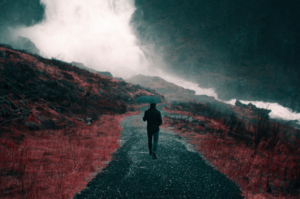
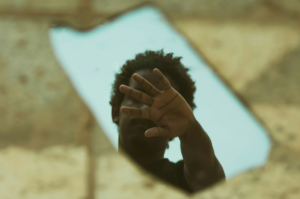
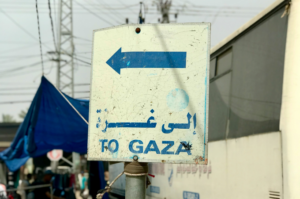
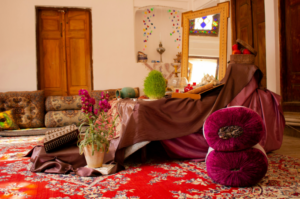
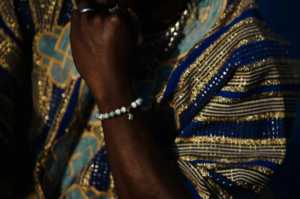
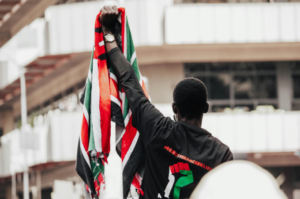

COMMENTS -
Reader Interactions